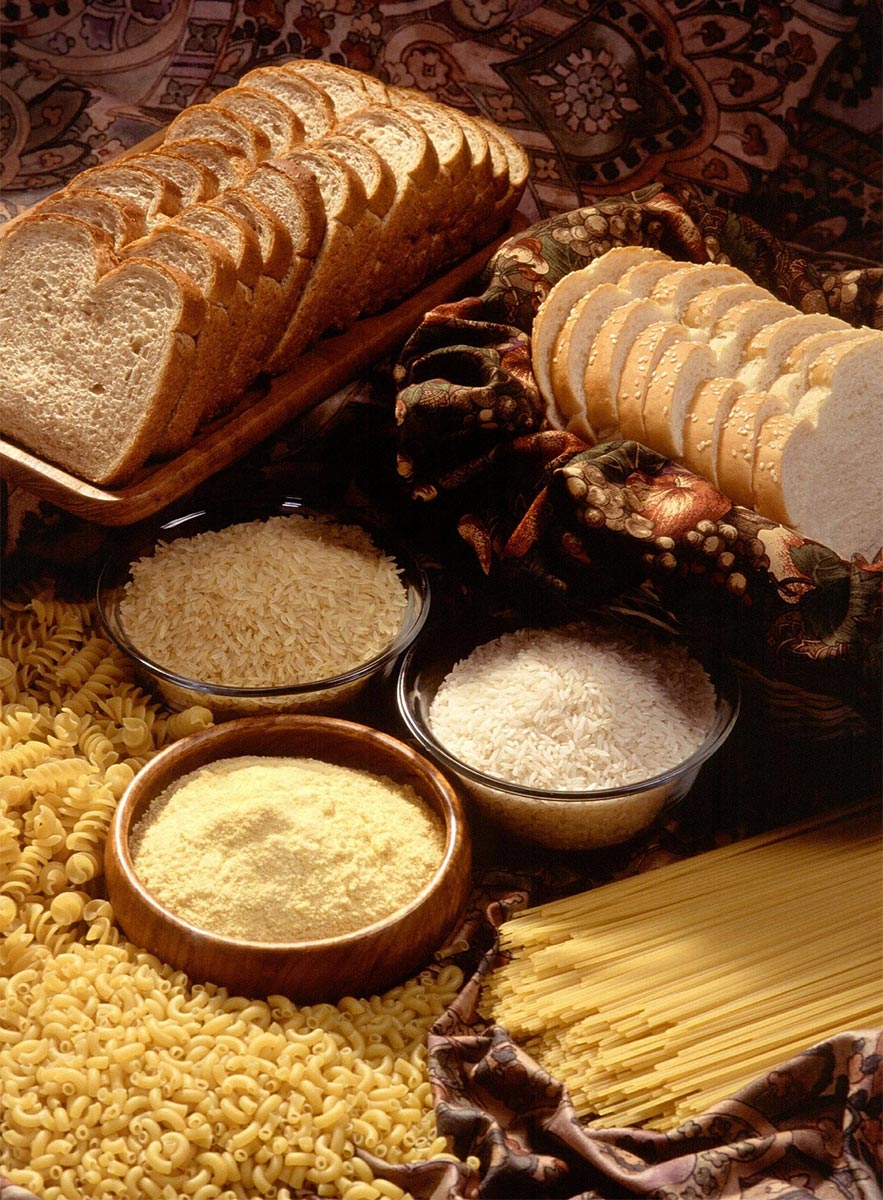You read and hear about it everywhere. Everybody is ditching the carbohydrate for the proverbial protein. To illustrate that many people will follow a fad diet, I always ask the dieter WHY they are eating protein only. I love it! I've even had people tell me that they are eating bacon and sausage because it has protein and no carbohydrates. What many people fail to understand is why carbohydrates are called "bad."
The Truth About Carbohydrates
Carbohydrates are not bad. In fact, they are the best fuel source for energy. If you don't have a good source of carbohydrates, your body will take from the protein and fat you eat to supply glucose. This is the reason people go for protein-heavy diets and starve their bodies of carbs. However, when you've depleted your stores of glycogen (stored glucose in muscles and lean tissue), your body turns to burning muscles or organs to supply energy needs. Have you ever gone on a protein-only diet and felt really sluggish? You can't think straight, can you? Well, there's your answer.
This is also why protein-only diets don't promote good muscle tone. Your body burns the protein you eat and depletes glycogen stored in your muscles for energy. The result? A slowed metabolism due to the loss of lean muscle tissue, which is crucial for burning calories. When your body perceives that it’s in a state of famine, it conserves energy by holding on to fat reserves to keep you alive. This is counterproductive to any weight loss effort.
The Role of Complex Carbohydrates
Not all carbohydrates are created equal. The carbohydrates you consume should ideally come from nutrient-dense, unprocessed foods that are close to their natural form. These are referred to as "complex carbohydrates." The closer the carbohydrate is to what nature provides, the richer it is in essential nutrients. Your body digests these carbs more slowly, preventing rapid spikes in blood sugar levels and reducing the likelihood of fat storage.
On the other hand, processed foods like soft drinks, cookies, chips, white bread, and alcohol contain "simple carbohydrates." These are highly refined and stripped of their nutritional value. Diets rich in these simple carbs are associated with a host of health issues, including heart disease, type 2 diabetes, and, yes, weight gain.
Why Blood Sugar Matters
What’s the big deal with high blood sugar levels? Well, elevated blood sugar / glucose levels and insulin levels signal your body to store fat. Simple carbohydrates, which are rapidly digested, cause a sharp rise in blood sugar, triggering a corresponding spike in insulin. This hormonal response encourages fat storage. Conversely, complex carbohydrates digest more slowly, leading to steadier blood sugar and insulin levels, which helps prevent excessive fat accumulation.
Good Carbs vs. Bad Carbs
If you’re trying to lose weight or improve your overall health, it’s essential to distinguish between good and bad carbohydrates. Good carbohydrates include fruits, vegetables, brown rice, whole grains, sweet potatoes, oatmeal, beans, seeds, and nuts. These foods are rich in fiber, vitamins, and minerals, providing long-lasting energy and supporting overall well-being.
Bad carbohydrates, on the other hand, include foods made with refined flour, milled corn, white rice, fruit juices, sugary soft drinks, and processed foods with added sugars. These foods provide empty calories and contribute to weight gain and metabolic dysfunction.
Balancing Carbohydrates in Your Diet
While it’s important to prioritize complex carbohydrates, you don’t have to eliminate carbs entirely from your diet. A balanced approach involves consuming a variety of healthy carbs while moderating your intake to control total calorie consumption. For example, pairing whole grains with lean protein or healthy fats can help balance your meals and prevent overeating.
It’s also worth noting that carbohydrate needs vary from person to person based on factors like activity level, metabolism, and health goals. Athletes and highly active individuals may require more carbohydrates to fuel their performance, while those with sedentary lifestyles may benefit from reducing their carb intake.
The Importance of Fiber
One often-overlooked benefit of complex carbohydrates is their fiber content. Fiber is essential for digestive health, as it promotes regular bowel movements and supports a healthy gut microbiome. Additionally, fiber helps regulate blood sugar levels by slowing the absorption of sugar into the bloodstream. This not only aids in weight management but also reduces the risk of developing chronic conditions like type 2 diabetes and heart disease.
Debunking Carb Myths
It’s easy to fall victim to carb myths, especially with the prevalence of fad diets that demonize carbohydrates. One common misconception is that all carbs cause weight gain. In reality, it’s the type and quantity of carbs that matter. Overeating any macronutrient—whether carbs, protein, or fat—can lead to weight gain. However, consuming moderate portions of healthy carbohydrates as part of a balanced diet supports weight loss and overall health.
Another myth is that carbs are unnecessary for energy. While it’s true that the body can use fat and protein for fuel in the absence of carbs, this process is less efficient and can lead to muscle breakdown. Carbohydrates are the body’s preferred energy source, particularly for high-intensity activities like running or weightlifting.
Carbohydrates are not the enemy. In fact, they are an essential part of a healthy diet, providing the energy needed for daily activities and supporting overall health. The key is to choose nutrient-dense, complex carbohydrates while limiting processed and refined options. By doing so, you can enjoy the benefits of sustained energy, better blood sugar control, and improved weight management.
So, the next time someone tells you that carbs are bad, remember that not all carbohydrates are created equal. Focus on incorporating whole, natural carb sources into your meals, and you’ll be well on your way to achieving your health and fitness goals.













